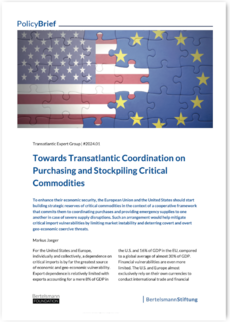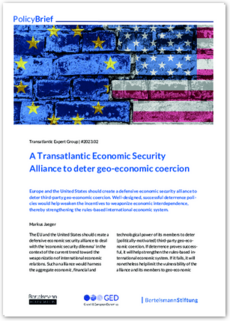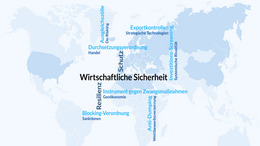For the U.S. and the EU, individually and collectively, a dependence on critical imports is by far the greatest source of economic and geo-economic vulnerability. Stockpiling critical imports, if designed and coordinated properly, holds out the greatest promise. It helps buffer the impact of supply shocks and it reduces the ability of geo-economic adversaries to exploit import-related dependencies.
The building of national stockpiles should be accompanied by transatlantic cooperation in the guise of bilateral agreements to allow for the lending and sale of reserves to one another as well as to commit the U.S. and the EU to a coordinated approach to releasing reserves in case of market instability. Although the stockpiles would nominally remain under national control, cooperative agreements on lending and sales would help generate diversification benefits and thus enhance collective security.
The policy brief is a publication of the Transatlantic Expert Group set up by the Bertelsmann Stiftung and the Bertelsmann Foundation in Washington, D.C.











